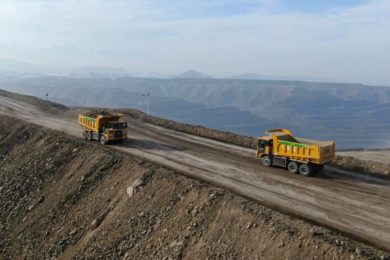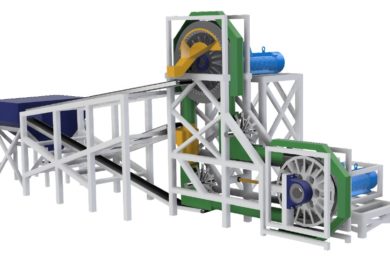Susanne Cooper and Nick Fleming* of SKM note that “sustainability is not just a political buzz word used to satisfy the concerns of stakeholders or environmentalists; it is critical to the success and longevity of projects. Sustainability principles are now broadly accepted by project teams as a useful compass to guide planning and design decisions. However, in managing sustainability in large, complex projects, there is a need to go beyond concepts or principles and to apply them pragmatically.
“It is essential to apply a structured, systematic process, particularly for programs that involve multiple projects and project teams. Likewise, it is critical to encourage thinking within a sustainability framework and engender this as part of design development.
“By rigorously applying sustainability principles to all decisions, it improves the long-term viability of those decisions and reduces the ecological footprint of infrastructure construction and operation, both financially and socially. These principles should not only form the basis for decisions, but can also be used to assess multiple options against detailed sustainability guidelines. In this way, sustainability is integrated into every activity undertaken by the organisation or project team.
“When embedded into all facets of a program, sustainability can:
- be applied throughout design and construction
- become part of the company culture ; and
- be adopted as the strategic direction for all projects.
“The real challenge is in the ‘how’ – and in applying sustainability principles across multiple projects at various stages of design. Importantly, embedding sustainability from the beginning of projects is essential in creating enduring value.
“Project delivery, engineering and sciences firm Sinclair Knight Merz (SKM) has been conducting sustainability workshops with clients to show how including sustainability from the beginning of projects is vital to creating enduring value.
“One such workshop has been conducted for the Rio Tinto Iron Ore Cape Lambert Project in the Pilbara, Western Australia. Intended to become a fundamental input to a project, rather than an ‘optional extra’, the workshops involve a cross-section of team members and encourage participants to think about projects in a holistic, integrated way, using sustainability principles.
“Addressing environmental, social, community, infrastructure and economic issues, the workshops have shown that incorporating sustainability design can positively impact the project’s design life. The workshops encourage participants to question conventional thinking and allow them to move away from the detail or out of their comfort zone, often with significant outcomes.
“Rather than design a program for them, the workshops aim to facilitate a process for participants to come up with ideas and new approaches to sustainable design to apply to the project. Part of the workshop aims to help implement corporate sustainability policies at the project level. Many organisations have corporate policies, objectives and statements of commitment, but implementing them into all activities can be a challenge – particularly if project managers have little experience in working with sustainability frameworks. By showing a commitment by action and delivering on those statements, community trust is gained. This, in turn, helps the approvals process, which is often subject to lengthy delays. By engaging stakeholders in these critical issues – early – projects have a much greater chance of success.
“There is a degree of corporate reputation and a social licence to operate management that are important outcomes from adopting a sustainability approach to project design and delivery.
“Embedding sustainability into an organisation or project team’s culture requires building awareness of applying sustainability in all activities and confidence in using a toolbox of sustainability approaches. To address this, SKM has developed a sustainability toolbox that provides a structured, systematic process and practical tools for project teams to apply. This has been applied at each level to include strategic questions and assessments that are most relevant to the scoping and conceptual design stage, as well as tools more appropriate for detailed design and construction.
“An important part of the toolbox approach has been to develop the team’s capability to apply these tools, sustainability criteria and way of thinking that epitomises a sustainable approach. To build this capability, SKM has designed and delivered a series of interactive sustainability learning modules appropriate for all team members. The modules introduce the concept of sustainability and cover specific tools (life cycle analysis, ecological footprint), and their potential applications.
“Long-held assumptions and current practice often strongly influence decisions across all elements of a project – from waste management to energy and costing. Financial estimates and assumptions underpin many decisions, but are rarely scrutinised. This is particularly relevant, given the rapidly changing costs linked to energy greenhouse gas emissions and water, and the longevity of substantial infrastructure which requires robust financial assessments over the life of the asset.
“Typically, large projects are commissioned with urgent time frames; the various disciplines brought together quickly for the project become busy and focused. Within this project environment, having a specific role designated to sustainability is important – not to develop specific design solutions isolated from other team members, but to establish an integrated and holistic process and framework that allows all team members to identify opportunities to build sustainability thinking into key decisions.
“This is a role that straddles all project tasks, including engineering design, communications, community engagement, on-ground works, site location and planning and operations. The role of a sustainability manager for these kinds of projects is increasingly important for a sustainability strategy to be effectively designed and implemented.
*Based in Brisbane, Australia, Susanne Cooper is SKM’s Executive Environmental Planner and review panel member of Sustainability Strategy and Evaluation, Climate Change Impacts and Adaptation and Integrated Natural Resource Management. Dr Nick Fleming is based in Melbourne and has over 15 years’ experience in consulting and research. With a PhD in Sustainable Urban Water Cycle Management, Nicholas is the Technology Manager for SKM’s Water & Environment Business Unit, the Practice Leader for Sustainability, and a Strategy and Sustainability board member.








